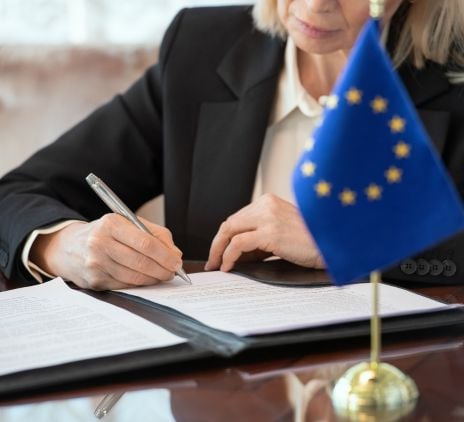Efficient and compliant work residence policy in the Netherlands
The organisation of immigration procedures, work permits and IND registrations (registrations at the immigration and naturalisation service) is a complex matter for many organisations and expats. The regulations are stringent, the requirements detailed, and errors or incompleteness are prone to delays, extra costs or even rejected applications. This imposes pressure on HR departments and international staff, who often have enough on their plates without all the requirements.
We provide clear and expert assistance in this process. With our support, the applications for work and residence permits (such as those for highly skilled migrants, intra-corporate transferees or EU Blue Card holders) as well as visas and the 30% facility are processed in both an efficient and compliant way. This prevents risks and speeds up the intake of international talent. This allows organisations to move quickly, benefit from lower administrative burdens and strengthen their position as an attractive employer, also for expats who bring their families.
How do we help you?
Our specialists assist in the entire process: from IND registration to visa, work and residence permit applications, with extra focus on the 30% facility and Treaty routes (DAFT, DJFT).
What do we offer?
- Applications for IND registration as recognised migrant employers, and work and residence permits (highly skilled migrants, trainees, intra-company transfers)
- Visa applications, including family reunification, and support with the 30% ruling
- Advice on the Dutch-American Friendship Treaty, Dutch-Japan Treaty and the Association Treaty with Turkey
- Process coordination with IND and Expat centres, including preparation for audits and quick compliance reviews
- Advice on business travel and training for HR and Global Mobility teams
How does this benefit you?
You benefit from a well-coordinated and accurate process with a higher chance of successful applications, fewer delays and full compliance. This reduces the administrative burden for both your organisation and the expat, ensuring a smoother intake and higher satisfaction for all those involved.
Benefits
- Compliance and minimum chance of failure
- Efficient timing and cost savings
- Expert assistance with IND and ensuing laws/regulations
- Support with family and treaty routes
- Increased attractiveness as an employer
- Transparent communication in respect of HR and employees
Any questions?
If you would like to know more about how we can help you with your organisation's immigration issues, please contact one of our specialists.
Why choose for Grant Thornton?
Grant Thornton Netherlands is a member of Grant Thornton International Ltd (GTIL), one of the world's largest networks (#7) of independent accounting and advisory firms, with 76,000 professionals in 156 markets. From eight Dutch offices, more than 700 professionals support our clients with advice and guidance in the fields of accountancy, tax, and (financial) advisory. We deliver world-class expertise in a way that seamlessly aligns with each client's unique situation. We operate from a solid foundation with a flexible and results-driven mindset.






